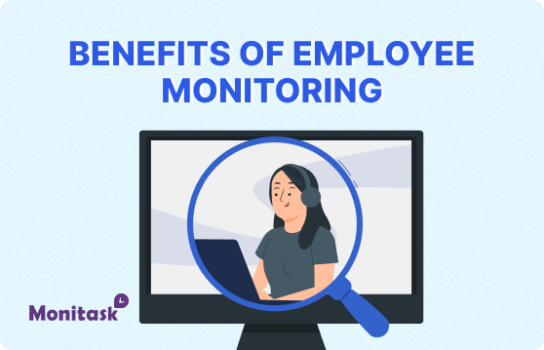HR for Startups
HR for startups is a crucial aspect of building a successful company from the ground up. As a startup founder or early employee, understanding the key HR concepts and best practices can make a significant difference in attracting top talent, fostering a positive company culture, and ensuring compliance with employment laws. This comprehensive glossary will cover essential HR terms and concepts specifically tailored for startups, helping you navigate the complex world of human resources as you grow your business.
Recruitment and Hiring
Recruiting and hiring are often the first HR challenges that startups face. Here are some key terms and concepts to know:
Applicant Tracking System (ATS)
An ATS is a software application that helps manage the recruitment process by organizing and tracking job applicants. For startups, an ATS can streamline hiring efforts and improve efficiency, especially as the volume of applications increases.
Employer Branding
Employer branding refers to a company's reputation as an employer and its value proposition to employees. For startups, developing a strong employer brand can be crucial in attracting top talent, even when competing against larger, more established companies.
Job Description
A job description is a document that outlines the responsibilities, qualifications, and requirements for a specific role. In startups, job descriptions may be more fluid and evolve as the company grows and roles change.
Onboarding
Onboarding is the process of integrating new employees into the organization. For startups, effective onboarding can help new hires quickly become productive and feel connected to the company's mission and culture.
Compensation and Benefits
Startups often need to get creative with compensation and benefits to attract and retain talent. Here are some important terms to understand:
Equity Compensation
Equity compensation involves offering employees ownership in the company, typically through stock options or restricted stock units (RSUs). This is a common practice in startups to attract talent and align employee interests with the company's success.
Vesting
Vesting is the process by which an employee earns the right to access and control their equity compensation over time. A typical vesting schedule might be four years with a one-year cliff, meaning the employee must stay for at least one year before any equity vests.
Total Rewards
Total rewards encompass all the ways employees are compensated, including salary, bonuses, benefits, and non-monetary perks. Startups often use creative total rewards packages to compete with larger companies that may offer higher salaries.
Flexible Benefits
Flexible benefits allow employees to choose from a range of options to create a benefits package that best suits their needs. This approach can be particularly attractive to startups with diverse workforces.
Performance Management
Effective performance management is critical for startups to ensure that employees are aligned with company goals and contributing to growth. Here are some key concepts:
OKRs (Objectives and Key Results)
OKRs are a goal-setting framework used by many startups to align individual and team objectives with overall company goals. This method helps focus efforts on key priorities and measure progress.
360-Degree Feedback
360-degree feedback is a performance evaluation method that incorporates feedback from multiple sources, including peers, subordinates, and supervisors. This approach can be particularly useful in startups with flat organizational structures.
Continuous Feedback
Continuous feedback involves ongoing communication between managers and employees about performance, rather than relying solely on annual reviews. This approach is often favored by startups for its agility and ability to address issues in real-time.
Employee Relations and Culture
Building a strong company culture and managing employee relations are critical for startup success. Here are some important terms:
Company Values
Company values are the core principles that guide an organization's behavior and decision-making. For startups, clearly defined and lived values can help attract like-minded employees and shape the company culture.
Employee Engagement
Employee engagement refers to the emotional commitment employees have to their work and the organization. High engagement is often correlated with better performance and retention, making it a key focus for startups.
Remote Work Policy
A remote work policy outlines the guidelines and expectations for employees working outside the office. With many startups embracing remote or hybrid work models, having a clear policy is essential.
Compliance and Legal Considerations
Navigating employment laws and regulations is crucial for startups to avoid legal issues. Here are some key terms:
At-Will Employment
At-will employment is a legal doctrine that allows either the employer or employee to terminate the employment relationship at any time, for any reason (with some exceptions). Most startups in the US operate under at-will employment.
FLSA (Fair Labor Standards Act)
The FLSA is a federal law that establishes minimum wage, overtime pay, recordkeeping, and child labor standards. Startups must ensure compliance with FLSA regulations as they grow.
EEO (Equal Employment Opportunity)
EEO refers to the legal requirement to provide equal employment opportunities to all individuals, regardless of race, color, religion, sex, national origin, age, or disability. Startups should prioritize EEO compliance from the outset.
HR Technology
Leveraging technology can help startups manage HR functions more efficiently. Here are some relevant terms:
HRIS (Human Resource Information System)
An HRIS is a software solution that combines several HR functions, such as storing employee data, managing payroll, and administering benefits. For startups, an HRIS can help streamline HR processes as the company grows.
Employee Self-Service Portal
An employee self-service portal is an online platform that allows employees to access and manage their own HR-related information, such as updating personal details or requesting time off. This can reduce administrative burden for HR teams in startups.
Talent Development
Investing in employee growth and development is crucial for startups to retain top talent and build a skilled workforce. Here are some relevant terms:
Learning and Development (L&D)
L&D refers to the processes and initiatives aimed at improving employee skills and knowledge. For startups, L&D can be a key differentiator in attracting and retaining talent.
Mentorship Program
A mentorship program pairs less experienced employees with more seasoned professionals to facilitate knowledge transfer and career development. This can be particularly valuable in startups where employees often wear multiple hats.
Career Pathing
Career pathing involves mapping out potential career progression routes within the organization. While this can be challenging in startups with flat structures, it's important for retaining ambitious employees.
Diversity, Equity, and Inclusion (DEI)
Building a diverse and inclusive workplace is increasingly important for startups. Here are some key terms:
Unconscious Bias
Unconscious bias refers to implicit attitudes or stereotypes that affect our understanding, actions, and decisions unconsciously. Recognizing and addressing unconscious bias is crucial for creating an inclusive startup environment.
Inclusive Leadership
Inclusive leadership involves creating an environment where all employees feel valued, respected, and able to contribute their best work. This is particularly important for startup leaders as they set the tone for the company culture.
Pay Equity
Pay equity refers to the practice of compensating employees fairly, without discrimination based on gender, race, or other protected characteristics. Startups should prioritize pay equity from the beginning to avoid issues as they scale.
Employee Wellbeing
Promoting employee wellbeing is crucial for maintaining a healthy and productive workforce. Here are some relevant terms:
Employee Assistance Program (EAP)
An EAP is a confidential counseling and support service provided by employers to help employees deal with personal and work-related issues. Even small startups can benefit from offering an EAP to support employee mental health.
Burnout Prevention
Burnout prevention involves strategies to help employees manage stress and maintain work-life balance. This is particularly important in startups where the pace can be intense and workloads heavy.
Flexible Work Arrangements
Flexible work arrangements allow employees to have some control over when and where they work. Many startups offer flexibility as a key perk to attract and retain talent.
In conclusion, mastering these HR concepts and implementing best practices can significantly contribute to a startup's success. By prioritizing effective recruitment, fair compensation, strong company culture, legal compliance, and employee development, startups can build a solid foundation for growth and innovation. Remember that HR strategies should evolve as the company grows, so it's important to regularly reassess and adapt your approach to meet changing needs.
As you navigate the complex world of HR for startups, keep in mind that while these concepts provide a strong foundation, every company is unique. Tailor your HR strategies to fit your specific business needs, company culture, and long-term goals. By doing so, you'll be well-positioned to attract top talent, foster a positive work environment, and drive your startup towards success.


